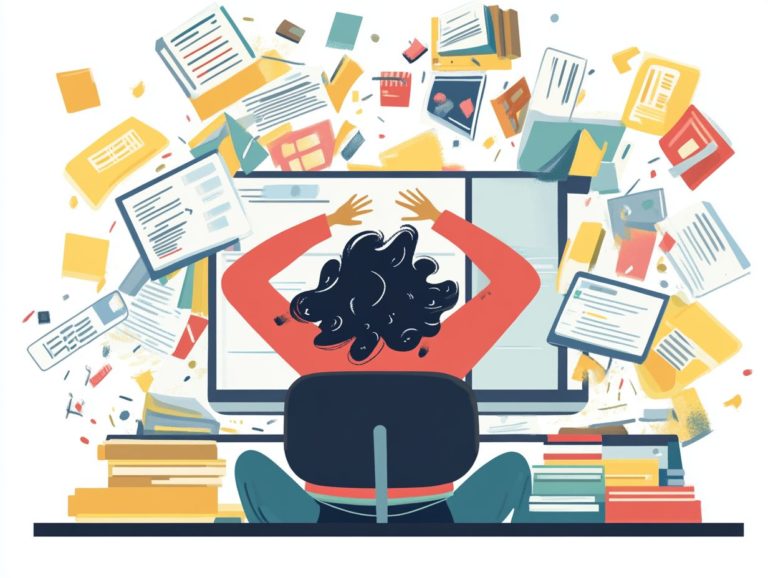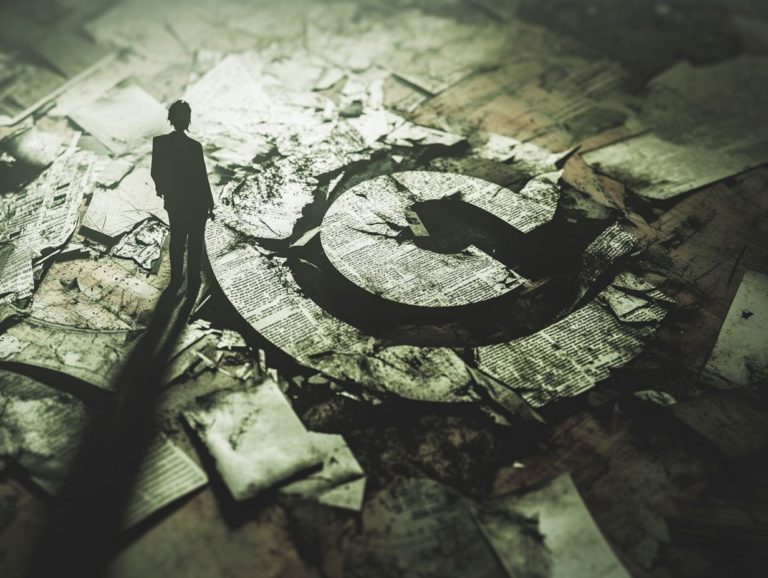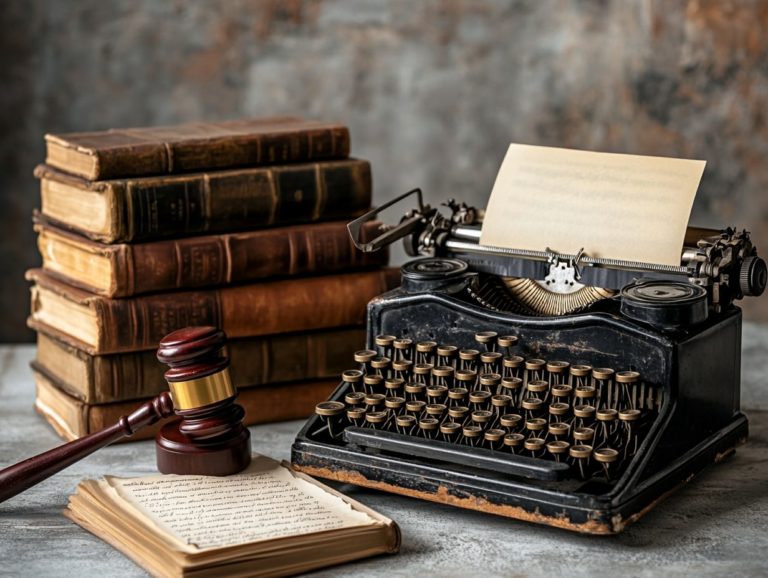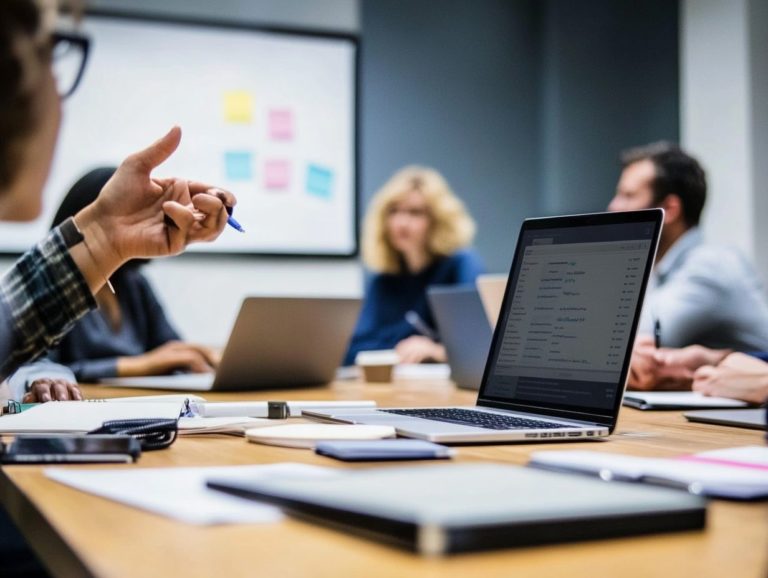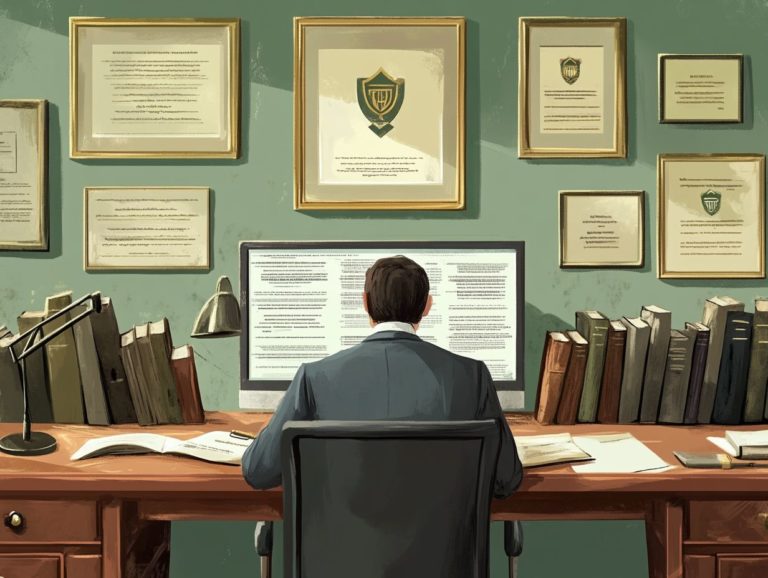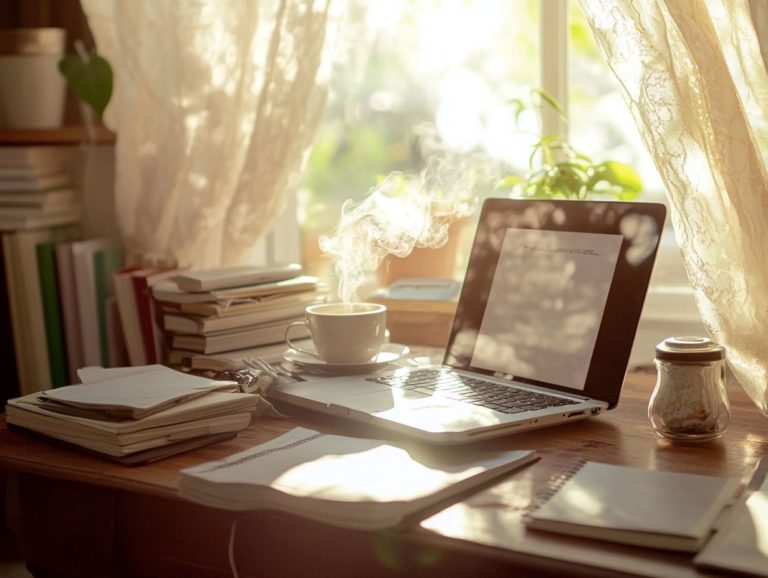The Process of Copyright Litigation Explained
Copyright litigation can feel like an intricate maze. However, grasping its nuances is essential for anyone engaged in creative fields.
This article is your roadmap through the litigation process. It starts with key definitions and the intentions behind copyright law. You ll discover the step-by-step process of filing a lawsuit, maneuvering through pre-trial procedures, and understanding what lies ahead during trials and appeals.
You ll meet the key players plaintiffs, defendants, lawyers, and judges. Additionally, you will gain clarity on common concerns and misconceptions surrounding copyright litigation. Whether you re a creator seeking protection or find yourself on the receiving end of a lawsuit, this guide equips you with valuable insights to navigate the complex realm of copyright law.
Contents
- Key Takeaways:
- Understanding Copyright Litigation
- Steps in the Copyright Litigation Process
- Key Players in Copyright Litigation
- Frequently Asked Questions
- Common Concerns and Misconceptions
- What is copyright litigation?
- What is the purpose of copyright litigation?
- What are the steps involved in the process of copyright litigation?
- What types of disputes can be resolved through copyright litigation?
- Do I need a lawyer for copyright litigation?
- How long does the process of copyright litigation typically take?
Key Takeaways:
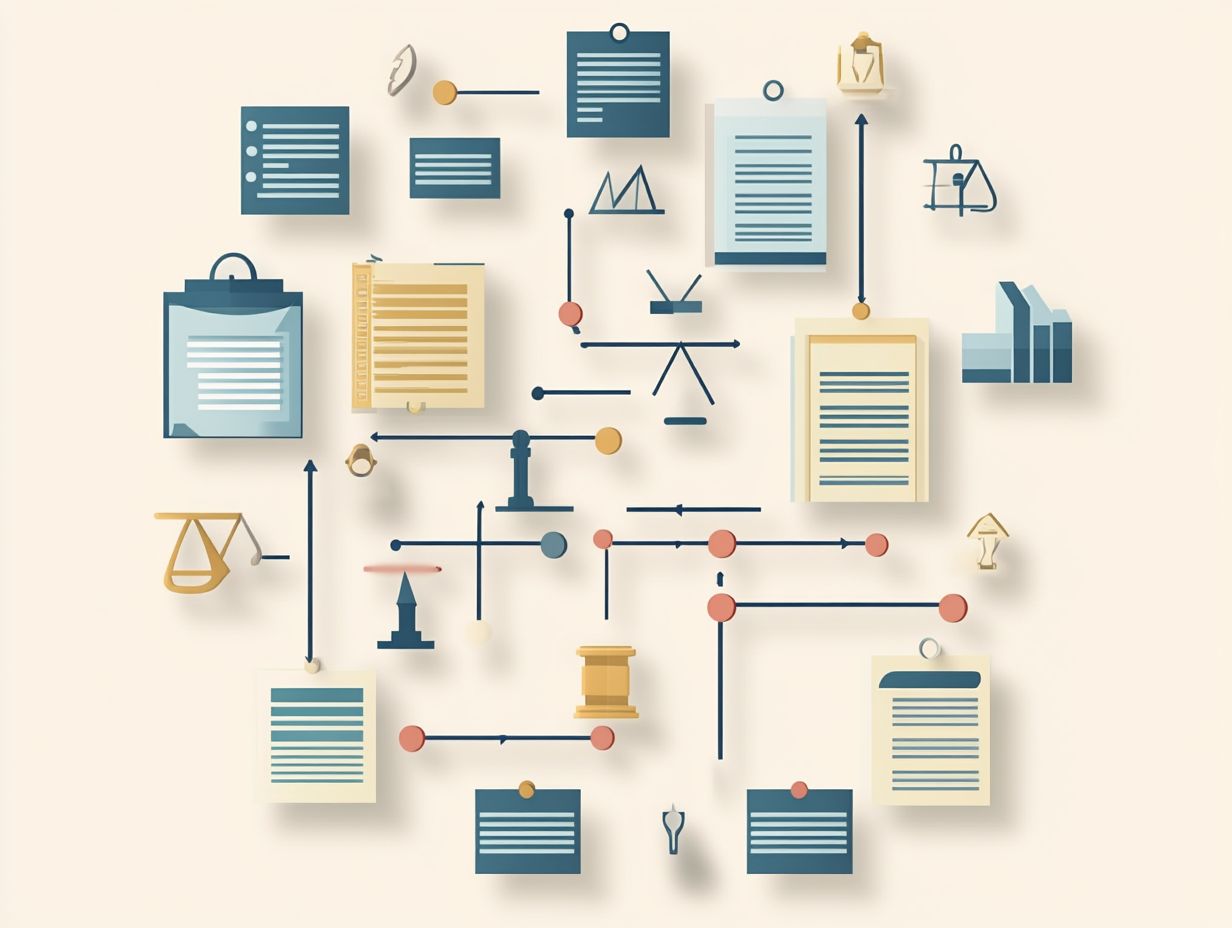
Copyright litigation is the legal process of resolving disputes over the ownership or infringement of creative works. The steps in the process involve filing a lawsuit, pre-trial procedures, trial and verdict, and potential appeals. To better navigate this complex area, it’s important to understand copyright infringement cases. The key players in copyright litigation include the plaintiff and defendant, as well as lawyers and judges. Common questions and concerns about this process often arise.
Understanding Copyright Litigation
Understanding copyright litigation demands a thorough comprehension of the complexities inherent in copyright law. It involves the legal frameworks that uphold the exclusive rights of copyright owners to their original works, as outlined by the Copyright Act of 1976. For those interested in similar legal processes, understanding the trade secret litigation process can provide valuable insights.
Copyright litigation usually happens when someone claims their work has been copied without permission. This requires formal legal measures to safeguard the creator’s rights and pursue remedies for violations, including statutory damages.
You must navigate the intricacies of the registration process at the Copyright Office. Understanding what copyright claims mean for you is essential for effective client counseling in these matters.
Definition and Purpose
Copyright litigation involves the legal processes you can initiate to protect your exclusive rights over your original works. This ensures that your creative work isn t used without your permission.
This legal action is vital for creators, as it sets clear boundaries around how your creative outputs whether music, literature, visual art, or software can be used.
The primary aim of such litigation is to safeguard the originality of your creations. This allows you to control how they are reproduced, distributed, and displayed. Copyright law grants you exclusive rights, enabling you to profit from your efforts and prevent unauthorized reproduction. This fosters an environment where creativity can truly flourish.
In this landscape, your role as a copyright owner is crucial; you must actively defend your rights to ensure that your work is respected and valued in the marketplace.
Steps in the Copyright Litigation Process
Navigating the copyright litigation process involves several essential steps. Understanding the copyright registration process is crucial, as you must follow these steps to successfully traverse the legal landscape.
The process begins with the initial filing of a lawsuit and may extend to the appeals process if necessary. Each phase is critical for ensuring that your case is handled with the utmost care and precision.
Filing a Lawsuit
Filing a lawsuit for copyright infringement is a crucial step in taking legal action to protect your rights as a copyright owner against unauthorized use of your original work.
Gathering your essential documents is the first exciting step in this journey! This includes proof of ownership and evidence of unauthorized usage. Establishing clear copyright claims is vital, and consulting with legal professionals can help you navigate the sometimes intricate world of copyright law.
The role of the Copyright Office is particularly important here. Registering your work can strengthen your case and offer additional legal safeguards.
Before diving into litigation, ensure you address potential prerequisites, such as submitting a properly completed application and paying the associated fees for copyright registration. This way, you ll be fully equipped to defend your valuable creation.
Pre-Trial Procedures
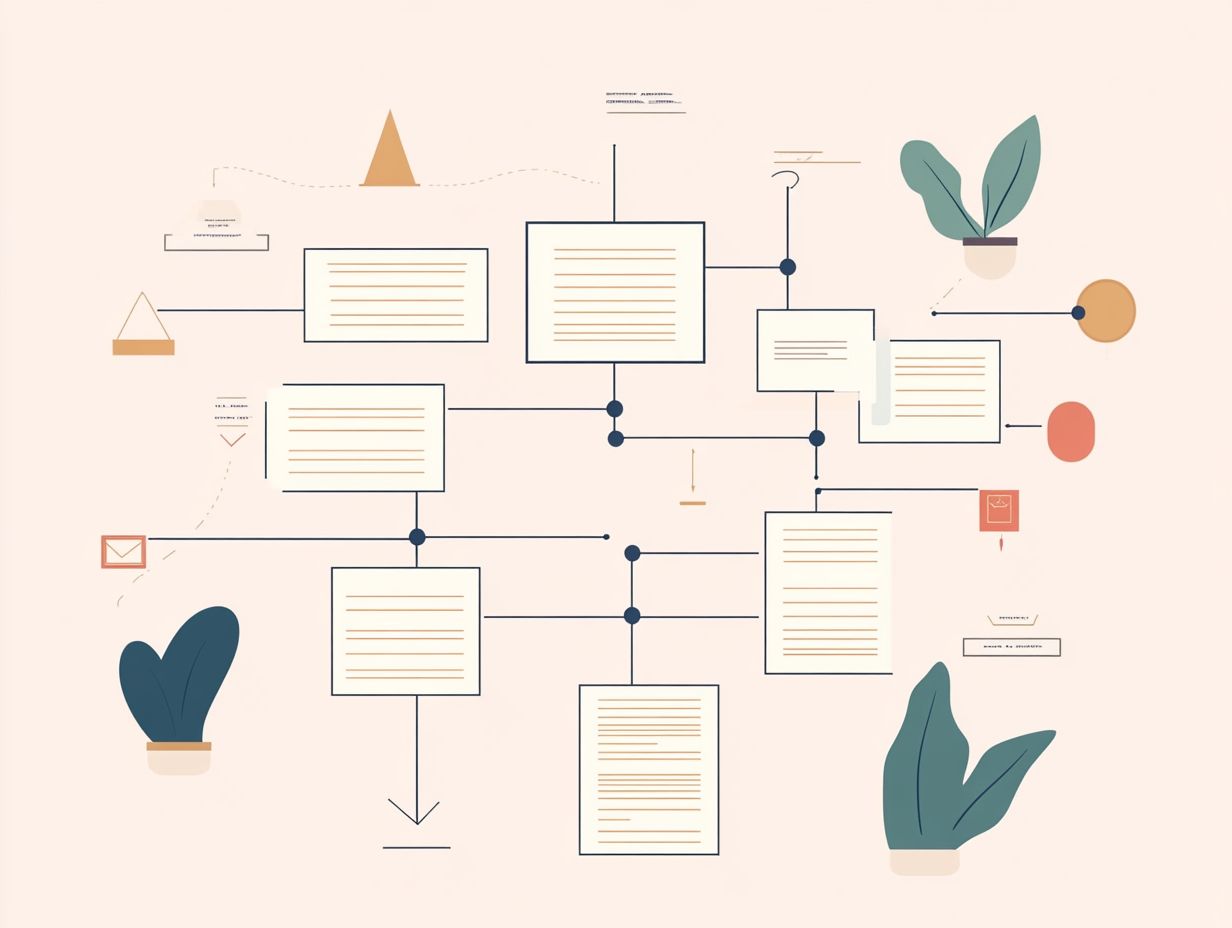
In copyright litigation, pre-trial procedures typically kick off with discovery, where you and the opposing party exchange relevant information. This is followed by mediation, an opportunity to resolve matters before the case sees the inside of a courtroom.
These processes are essential. They not only clarify the facts but also provide insight into the strengths and weaknesses of each side’s position. Discovery can uncover crucial documents or testimonies that may significantly impact the trajectory of your case.
Mediation helps settle disputes before trial. It offers you a chance to reach a mutually agreeable resolution without the hefty costs of a trial.
Navigating these phases with effective negotiation skills can lead to favorable settlements, potentially lowering the damages sought by copyright owners while also reducing the unpredictability associated with a court decision.
Trial and Verdict
The trial stage of copyright litigation is a pivotal moment, where evidence is presented clearly, arguments are crafted with precision, and the court ultimately delivers its verdict on the alleged copyright infringement.
During this process, both parties are represented by their skilled attorneys. They are crucial in shaping the narrative through compelling arguments and strategic presentations. The presiding judge oversees the proceedings, ensuring that legal protocols are upheld and that evidence is evaluated with impartiality.
A variety of evidence comes into play, including witness testimonies, expert analyses, and documentation of the works in question. Judges typically seek substantial proof of ownership, the degree of originality, and clear evidence of infringement.
Depending on the outcome, the court may rule in favor of the copyright owner, resulting in an award of damages. This can include financial compensation for losses sustained and may set a precedent that influences similar cases moving forward.
Appeals Process
If you find yourself dissatisfied with the trial verdict in copyright litigation, you have the option to engage in the appeals process. This allows for a thorough review of the legal decisions made during the trial.
This process is important, as it gives you the chance to challenge specific grounds for appeal, such as procedural errors or misapplications of the law that could sway the outcome in your favor.
Typically, the timeline for initiating an appeal is strictly defined. Act swiftly filing a notice of appeal soon after the verdict is crucial, followed by a written brief that outlines your legal arguments.
The potential outcomes can vary widely, ranging from the affirmation of the original verdict to a complete overturning, which could significantly impact the final damages awarded.
Given the complexities involved, securing skilled legal representation is essential not only for crafting a compelling argument but also for expertly navigating the intricate rules that govern the appeal process.
Key Players in Copyright Litigation
In copyright litigation, grasping the roles of key players such as the plaintiff, defendant, copyright owner, lawyers, and judges is crucial for successfully navigating the intricate legal landscape of copyright disputes, as outlined in what to expect during an IP litigation process.
Understanding these dynamics gives you the power to approach your case with clarity and confidence. This ensures you’re well-equipped to make informed decisions throughout the process.
Plaintiff and Defendant
In a copyright infringement case, the plaintiff is often the copyright owner, asserting that their exclusive rights have been breached. The defendant is the party accused of infringing those rights.
The responsibility lies with the plaintiff to prove that the copyrighted material is indeed original and that the defendant’s actions amount to infringement. This typically requires presenting evidence of ownership and detailing how the defendant’s use of the work exceeds the limits of fair use, which allows limited use of copyrighted material without permission.
On the flip side, the defendant must craft a defense, which might involve questioning the validity of the copyright, arguing for fair use, or asserting that the work in question lacks originality.
A famous case is the ‘Blurred Lines’ dispute, where Marvin Gaye’s estate claimed that the song copied elements from his hit ‘Got to Give It Up.’ In this scenario, both parties had to carefully articulate their arguments to establish their positions in the legal arena.
Lawyers and Judges
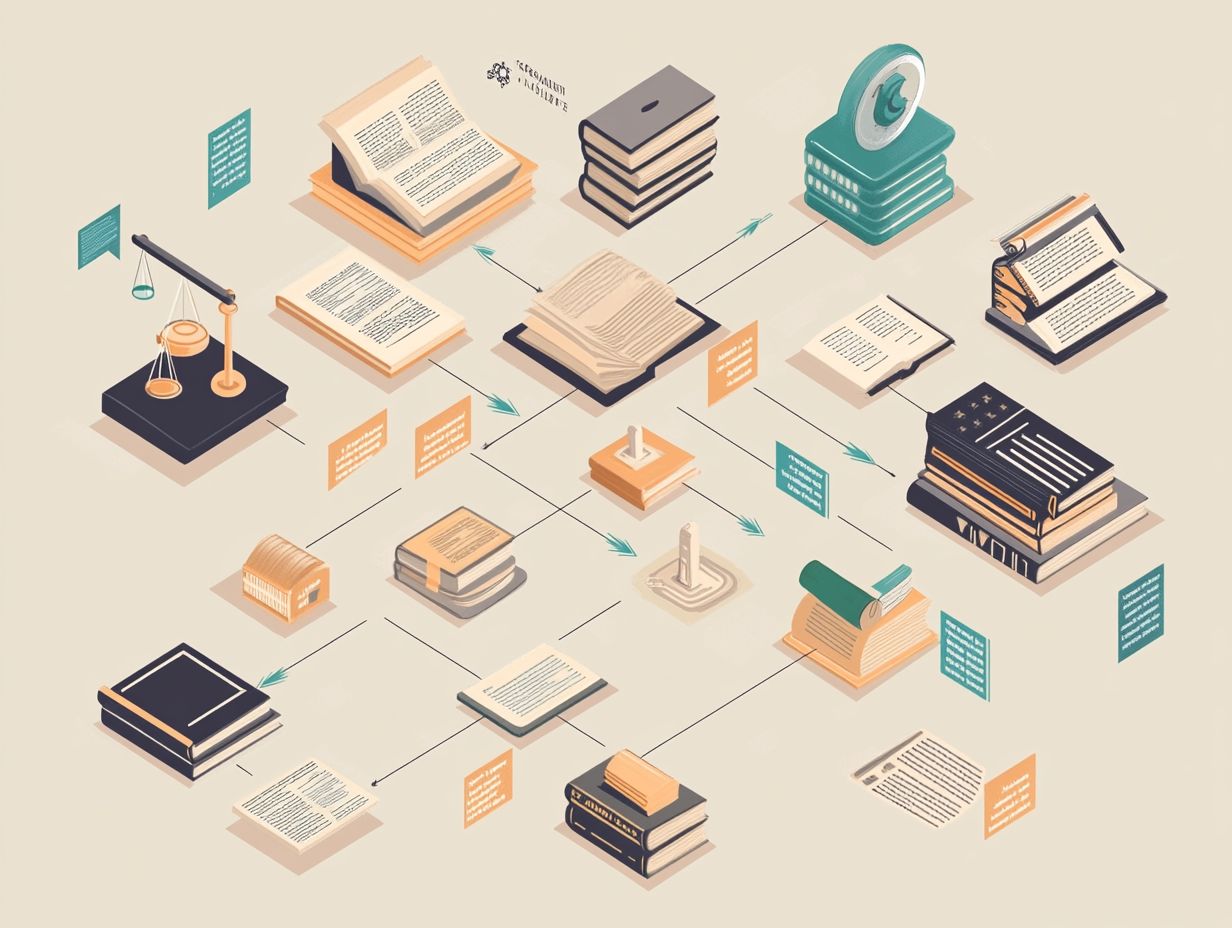
Lawyers and judges are integral to copyright litigation. Lawyers advocate for their clients, while judges ensure that legal proceedings follow the law.
Your job as a lawyer goes beyond just representation. You must navigate the complexities of copyright law and craft persuasive arguments that reflect your clients’ interests and adhere to court rules.
Judges interpret the law and assess the merits of each case with an impartial eye. Their decisions can have significant implications for copyright holders and those accused of infringement.
The collaborative efforts of lawyers and judges are essential in promoting justice. They work together to deliver fair outcomes that balance the rights of creators with the need for public access, ultimately shaping the landscape of intellectual property protection.
Frequently Asked Questions
Copyright litigation frequently presents many questions and concerns for copyright owners and creators alike, especially regarding copyright infringement and potential damages.
Common Concerns and Misconceptions
Common concerns and misconceptions about copyright litigation often stem from misunderstandings regarding the scope of copyright infringement and the rights of copyright owners.
Many people think that all creative works are automatically protected, but that’s not the case. Specific requirements are needed to establish a copyright claim.
The concept of fair use is often misinterpreted, leading to confusion over what constitutes legitimate borrowing versus infringement. For example, using a small excerpt for educational purposes may be acceptable, but it s essential to evaluate the context, amount, and transformative nature of that use.
By grasping these nuances, you can navigate your rights and obligations more effectively. Understanding copyright is crucial to protect your creative work!
What is copyright litigation?
Copyright litigation is a legal process that resolves disputes over the ownership and use of creative works, such as books, music, and artwork.
What is the purpose of copyright litigation?
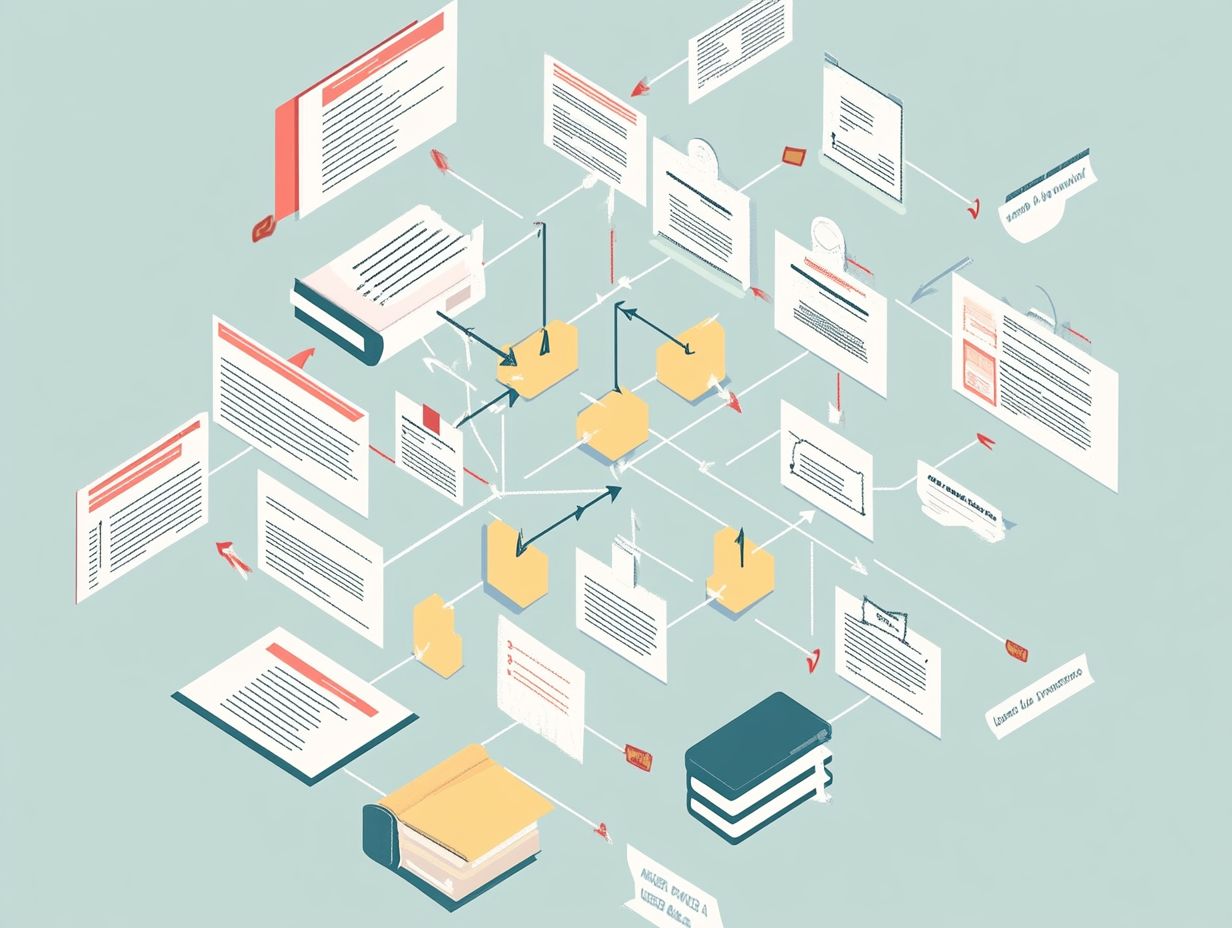
The purpose of copyright litigation is to protect the rights of creators and owners of creative works and to enforce copyright laws.
What are the steps involved in the process of copyright litigation?
The process typically involves filing a complaint, gathering evidence, engaging in discovery, and presenting arguments in court. It may also include settlement negotiations and appeals.
What types of disputes can be resolved through copyright litigation?
Copyright litigation can resolve disputes over ownership of a creative work, copyright infringement, plagiarism, and other related issues.
Do I need a lawyer for copyright litigation?
While it’s possible to represent yourself in copyright litigation, it’s highly recommended to seek guidance from a lawyer specializing in intellectual property law.
How long does the process of copyright litigation typically take?
The length of copyright litigation can vary based on case complexity, taking anywhere from a few months to several years to reach a resolution.
If you’re unsure about your rights, consulting a copyright lawyer can help you navigate this complex area!

